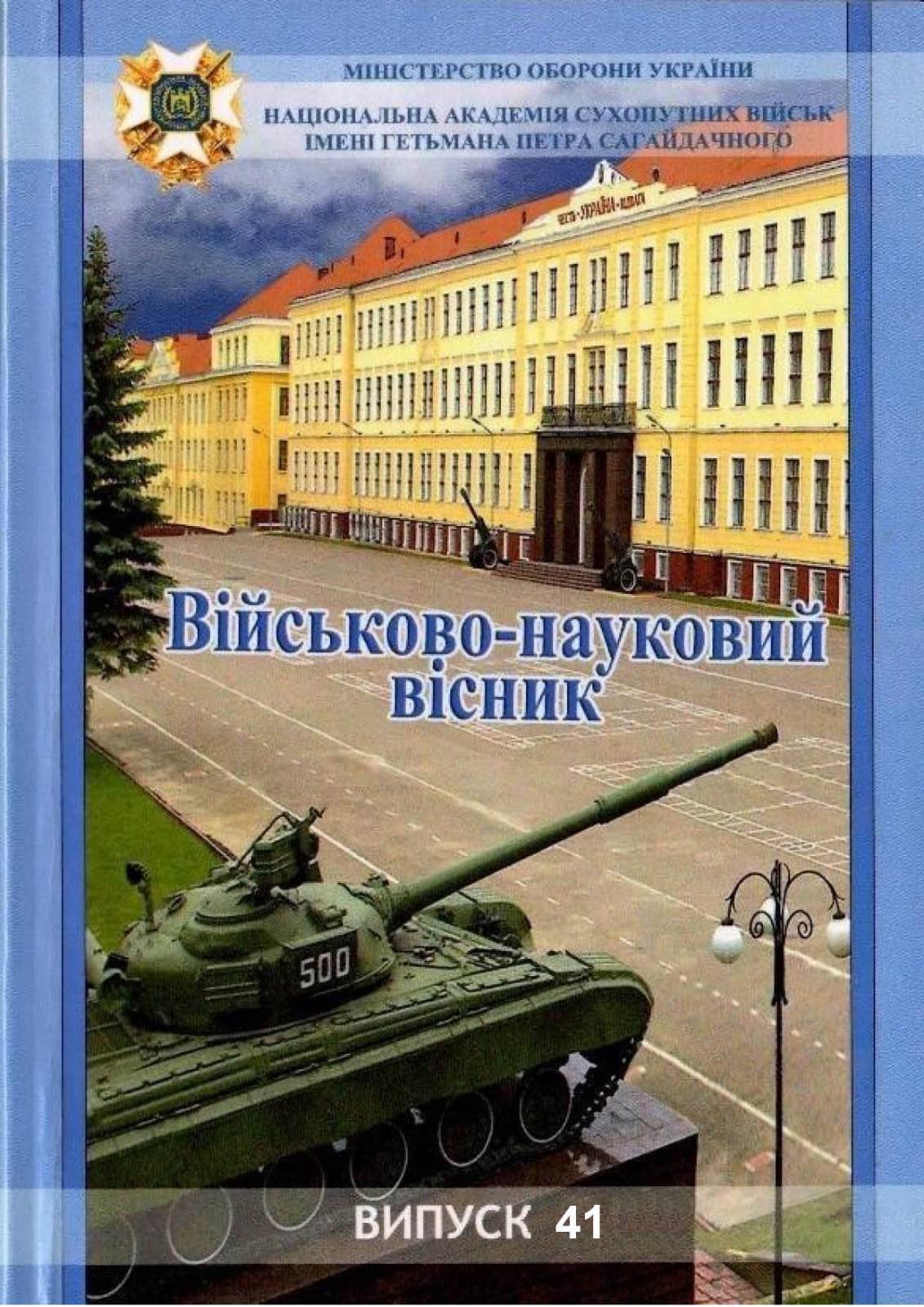ІСТОРИЧНІ АСПЕКТИ РОЗВИТКУ ОРГАНІЗАЦІЙНОГО ВИВЧЕННЯ І ВПРОВАДЖЕННЯ ДОСВІДУ В ПІВНІЧНОАТЛАНТИЧНОМУ АЛЬЯНСІ (1949 – 2024)
DOI:
https://doi.org/10.33577/2313-5603.41.2024.162-175Ключові слова:
організаційне вивчення і впровадження досвіду, система вивчення і впровадження досвіду, НАТОАнотація
У статті розглянуто історичні аспекти розвитку організаційного вивчення і впровадження досвіду (ОВВД) в Північноатлантичному Альянсі (1949 – 2024). Дослідження сфокусовано на консеквентному вивченні основ створення та функціонування Об’єднаної системи вивчення і впровадження досвіду, яка визначає форму та сутність ОВВД НАТО протягом вказаного хронологічного періоду.
Історичний аналіз зазначеної Системи проведено за чотирма напрямами (структура, процес, підготовка особового складу та засоби), що відповідають основним компонентам спроможностей ОВВД Альянсу. За результатами дослідження запропоновано розрізняти чотири ключові етапи розвитку ОВВД в НАТО: 1) формування (1949 – 2002); 2) вдосконалення спроможностей ОВВД (2003 – 2010); 3) модернізація (2011 – 2020); 4) еволюція на основі цифрової трансформації (2021 – по теперішній час).
Це військово-історичне дослідження є актуальним у контексті нагальної потреби подальшого удосконалення ОВВД у Збройних Силах України з метою відсічі російській збройній агресії проти нашої держави та забезпечення взаємосумісності з Північноатлантичним Альянсом.
Посилання
Argyris C. (1977). Organizational learning and management information systems. Accounting, Organizations, and Society. Volume 2, Issue 2, Р. 113-л – 123.
Basten D. and Haamann T. (2018) Approaches for Organizational Learning: A Literature Review. SAGE Open, 8, Article ID: 2158244018794224. https://doi.org/ 10.1177/2158244018794224.
Cyert R., March J. (1963). A Behavioral Theory of the Firm. Englewood Cliffs. NJ: Prentice-Hall, 1963. 332 p.
Chiva R., Ghauri P., and Alegre J. (2014). Organizational learning, innovation, and inter¬nationalization: A complex system model. British Journal of Management, 25, Р. 687 – 705.
Directive 2018. Two Strategic Command’s (Bi-SC) Directive 080-006. Lessons Learned. 23 February 2018, NATO Unclassified. 25 p.
Dixon N. (2011). A Model Lessons Learned System – The US Army. 2011 Best Practices for Government Libraries, Р. 227 –231. URL: http://www.lexisnexis.com/tsg/gov/best_practices_2011.pdf.
Dyson T. (2019). Organizational Learning and the Modern Army. A New Model for Lessons-Learned Processes. 1st Edition. London: Routledge, 2019. 276 p.
Dyson T. and Pashchuk Y. (2022). Organizational learning during the Donbas War: the development of Ukrainian Armed Forces lessons-learned processes. Defence Studies. Volume 22, 2022 – Issue 2: Р. 141 – 167. https://doi.org/10.1080/14702436. 2022.2037427.
Foley R. (2014). Dumb donkeys or cunning foxes? Learning in the British and German Armies during the Great War. International Affairs 90 (2), Р. 279 – 298.
JALLC 2015. Closing the Loop. The Lessons Learned Capability in Support of NATO Transformation. NATO Joint Analysis and Lessons Learned Centre, 2015.
JALLC 2017. 15 Years of the JALLC – NATO. Lisbon: NATO Joint Analysis and Lessons Learned Centre, 2017. 160 p.
JALLC 2019. NATO LL Conference 2019 Magazine. 14-16 Oct 2019. URL: https: //www.jallc.nato.int/application/files/5616/0260/2350/20191220_NLLC19_Magazine.pdf.
JALLC 2022. Joint Analysis and Lessons Learned Centre. Lisbon: NATO Joint Analysis and Lessons Learned Centre, 2022.
URL:https://www.jallc.nato.int/application/files/4316/1469/2979/NEW_JALLC_Brochure.pdf
JALLC 2023. 2023 Special Digital Transformation Edition. The JALLC Explorer. 07-11-2023, 76 p.
Landry A. (1989). The Joint Lessons Learned System and Interoperability. A thesis presented to the Faculty of the U.S. Army Command and General Staff College, 1989. 222 р.
Leavitt C. (2011). A Comparative Analysis of Three Unique Theories of Organizational Learning. Institute of Education Sciences. Sept 14, 2011. https://files.eric.ed.gov/fulltext/ED523990.pdf.
Mains S. and Ad Ariely G. (2012). Learning while fighting: operational knowledge management that makes a difference. Prism 2 (3). Р. 165 – 176.
Marcus R. (2015). Military innovation and tactical adaptation in the Israel-Hizballah conflict: the institutionalization of lesson-learning in the IDF. Journal of Strategic Studies 38 (4). Р. 500 – 528.
Marcus R. (2017). Learning under fire: Israel’s improvised military adaptation to Hamas tunnel warfare. Journal of Strategic Studies 1-27.
NATO 2003. Military Command Concept for Centres of Excellence. MCM-236-03. 04 Dec 2003.
NATO 2004. NATO COE Accreditation Criteria. NATO Directive IMSM-0416-04. 2004.
NATO 2010. The Lessons Learned Handbook. Joint Analysis and Lessons Learned Centre. Lisbon, Portugal. First Edition, October 2010. 55 p.
NATO 2019. Allied joint doctrine for the conduct of operations. NATO Standard AJP-3. Edition C. Version 1. 2019. 164 p.
NATO 2022. The NATO Lessons Learned Handbook. NATO Joint Analysis and Lessons Learned Centre. Fourth Edition. June 2022. 59 p.
NATO 2024. NATO Centres of Excellence. NATO Allied Command Transformation. URL: https://www.act.nato.int/centres-of-excellence.
Serena C. (2011). A revolution in military adaptation: the US Army in the Iraq War. Washington: Georgetown University Press.
Shipton H. (2004). Organizational learning: reality or myth? Aston Business School Research Institute.
US 2011. Establishing a Lessons Learned Program. CALL, June 2011. 96 p. Retrieved from: https://usacac.army.mil/sites/default/files/publications/11-33.pdf.
Waliński Z. (2016). The Role of a Commander in Military Lessons Learned Systems. March 2016, Journal of Corporate Responsibility and Leadership 2(1). Р. 95 –106. https://doi.org/10.12775/JCRL.2015.006.
##submission.downloads##
Опубліковано
Номер
Розділ
Ліцензія
1. Відповідальність за точність поданих фактів, цитат, цифр і прізвищ несуть автори матеріалів.
2. Редакція матеріали не повертає.
3. Автори залишають за собою право на авторство своєї роботи та передають журналу право першої публікації цієї роботи на умовах ліцензії Creative Commons Attribution Non-Commercial License, котра дозволяє іншим особам вільно розповсюджувати опубліковану роботу з обов'язковим посиланням на авторів оригінальної роботи та першу публікацію роботи в цьому журналі.
4. Автори мають право укладати самостійні додаткові угоди щодо неексклюзивного розповсюдження роботи у тому вигляді, у якому вона була опублікована цим журналом (наприклад, розміщувати роботу в електронному сховищі установи або публікувати у складі монографії), за умови збереження посилання на першу публікацію роботи в цьому журналі.


